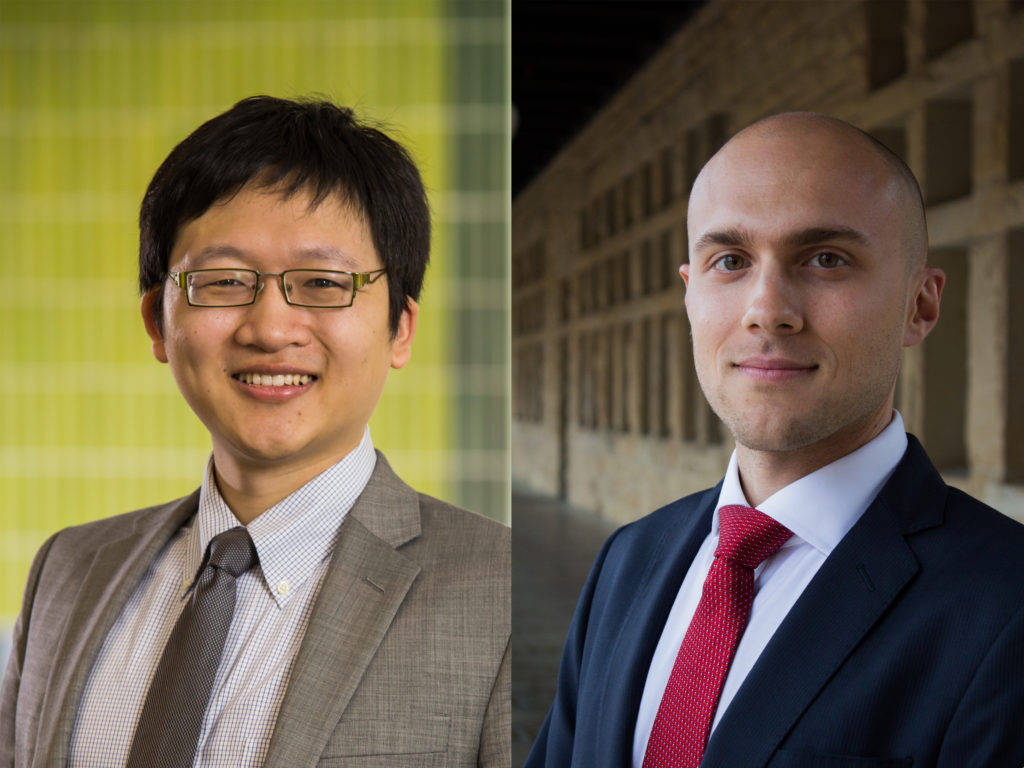By Sharon Adarlo

Princeton E-ffiliates Partnership is funding two leading-edge energy and environmental research projects, one to develop direct current (DC) power architecture for smart homes and the other to explore harvesting deep sea methane carbon-neutrally.
E-ffiliates, a corporate membership program of Princeton University’s Andlinger Center for Energy and the Environment, facilitates academic and industrial collaboration, enhances teacher-student-practitioner interactions, and promotes technology transfer between Princeton and its corporate partners to address global energy needs and environmental concerns.
Minjie Chen, assistant professor of electrical engineering and the Andlinger Center for Energy and the Environment, is drawing together an interdisciplinary team to develop a high performance, high power density DC delivery system for use in smart homes or larger multi-family buildings.
Alternating current (AC), a form of electricity that periodically reverses direction, is the form of electricity that is fed into most buildings. Older household appliances used this electricity directly. Current and emerging household appliances – flat-panel displays, computers, and robotic vacuum cleaners – consume power in the form of direct current (DC), where electricity flows in only one direction. These primarily digital devices usually have bulky adapters to convert AC to DC, a process that incurs energy loss.
Future homes built with the project’s proposed high-performance DC delivery architecture can significantly cut this energy loss and can also be integrated directly with photovoltaics, electric vehicles, and energy storage systems to run the building’s functions, including lighting, computing, heating, and cooling. Two other jointly-appointed faculty members at the center, Daniel Steingart, associate professor of mechanical and aerospace engineering, and Forrest Meggers, assistant professor of architecture, are bringing their expertise on advanced energy storage and building thermal systems to the project, respectively.
Success in the project can lead to further development of smart homes, efficient DC power delivery, smart grids, and “internet-of-things” applications.
Maurizio Chiaramonte, assistant professor of civil and environmental engineering, will use E-ffiliates funding to conduct computer simulations to study the feasibility of harvesting methane from deep sea sediments while sequestering carbon dioxide in the same sediment pockets.
Large amounts of methane are trapped in sediments in the ocean floor in the form of hydrates. Methane hydrate is a crystalline solid comprised of methane gas trapped in a solid lattice of water molecules, with an appearance similar to ice. Methane hydrate can be found in sedimentary deposits along continental margins and in other deposits around the world. Recent estimates of methane in hydrate form are on the order of 3000 trillion cubic meters, an order of magnitude greater than conventional resources of hydrocarbons. Naturally occurring methane hydrates represent an enormous source of energy for many years to come.
Chiaramonte will assess the simultaneous harvesting of methane and sequestering of carbon dioxide in the form of these hydrates in deep sea deposits, thereby minimizing the climatic effects of using a fossil fuel for an energy source. Several challenges have been identified as bottlenecks to this technology, including the stability of methane hydrate and its host sediment, during production and thereafter.
Through the development of multi-physics, multi-phase, multi-component simulators, Chiaramonte will address the most compelling challenges tied to sediment and hydrate stability, and assess the feasibility of carbon dioxide storage and methane production. If the process proves to be feasible, it presents a technology that would lead to an ideally greenhouse-gas-neutral source of energy.
More on the project funding:
Funding for these projects, totaling $299,652, was awarded after a review of proposals submitted by Princeton faculty and senior researchers. The two projects will run from January 1, 2018 to December 31, 2018.
Funding is made possible through the contributions of E-ffiliates member companies, and is intended to promote interdisciplinary and collaborative research in energy- and environment-related fields that can become market-ready solutions. Previous projects funded through E-ffiliates include the development of a dehumidification process that combines a liquid desiccant (a drying agent) and a hydrophilic (water-loving) membrane to cool buildings, as well as a study on the effectiveness of using Facebook ads to cut individuals’ energy use.
More information on past projects can be found here.
For more information on Princeton E-ffiliates Partnership and the Andlinger Center for Energy and the Environment, contact Sharon Adarlo, communications specialist, at sadarlo@princeton.edu or (609) 258-9979.